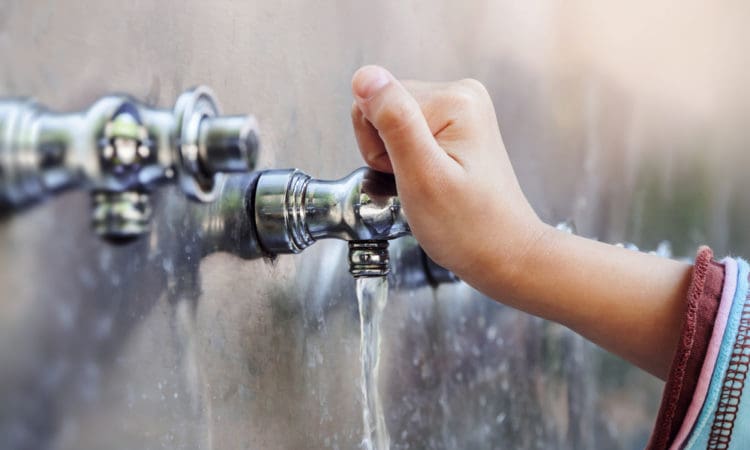We live in a world where resources are becoming increasingly scarce. In order to ensure that future generations have access to the resources they need, it is important to teach children about the importance of respecting and conserving resources.
One way to do this is to incorporate education about resource conservation into the school curriculum. By teaching children about the importance of respecting and conserving resources, we can help them develop the skills and knowledge they need to make responsible decisions about resource use.
Resource conservation education can help children understand the impact of human activity on the environment and learn about ways to reduce our impact. It can also help them develop an appreciation for the natural world and an understanding of our role in stewardship.
Education about resource conservation is an important part of creating a sustainable future for all. By teaching children to respect and conserve resources, we can help ensure that they will have the resources they need to thrive in the future.
How to teach children respect water resources?
It is important to instill a sense of respect for water and other resources in children from a young age. Here are some ways to do this:
- Explain where water comes from and why it is essential.
- Teach children how to conserve water through simple actions like turning off the faucet while brushing their teeth.
- Encourage kids to participate in activities that help the environment, such as picking up trash on a beach or planting trees.
- Help them understand the impact of pollution and how it can harm wildlife and ecosystems.
- Show them how recycling can help reduce wastage of resources.
- Finally, lead by example – let them see you conserving water and recycling at home.
Ways to educate children about saving water and energy
There are many ways to educate children about saving water and energy, but one of the most effective is through hands-on learning experiences. Many schools now offer programs that allow students to learn about water conservation and energy efficiency through interactive activities. Quite often students write academic papers about saving resources and use cheapest essay help.
Some of these programs may include field trips to local water treatment facilities or power plants, where children can see first-hand how their daily actions impact the environment. Others may feature guest speakers from utility companies or environmental organizations, who can share tips on how families can save money and conserve resources.
Many communities also offer youth groups or clubs focused on environmental stewardship. These clubs typically meet once a week or month, and participate in activities like tree planting, beach cleanups, or energy audits. By getting involved in these types of activities, children can learn about the importance of taking care of the planet and developing sustainable habits.
Top 5 eco-saving lessons from parents to children
As parents, we can play an important role in teaching our children about eco-saving habits. By leading by example and instilling these values from a young age, we can help create a generation of environmentally responsible citizens.
Here are some simple ways to start:
1. Reduce, reuse, recycle – These three words are the key to going green. Help your child understand the importance of reducing waste, reusing items where possible, and recycling whatever can’t be reused. For instance, looking for facilities that accommodate the disposal of old computers, electronics, or recycling phones at nearby recycling centers also be a great option.
2. Turn off the tap – One of the easiest ways to conserve water is simply by turning off the faucet when not in use. Make sure your child knows to do this every time they brush their teeth or wash their hands.
3. Save energy – conserving energy is another great way to be eco-friendly. Teach your child to turn off lights when leaving a room, and to unplug electronics that aren’t in use.
4. Eat healthy foods – Not only is eating healthy good for the body, but it’s also good for the environment. Help your child understand how their food choices can impact the planet, and encourage them to make eco-friendly choices whenever possible.
5. Get outside – One of the best things you can do for the environment is simply to spend time outdoors. Take your child on hikes, teach them about local plants and animals, and show them the beauty of nature.
Importance of teching young generation to save resources
It is important to teach the young generation about saving resources as they are the future of our planet. They need to know how to conserve energy, water and other resources so that we can all enjoy a better quality of life.
There are many ways to save resources, and it is important to find ways that work best for each individual. Some people may be able to save more resources by using less water when showering, while others may be able to save more energy by conserving electricity. There are many different ways to save resources, and it is important to find the ones that work best for you.
Saving resources is not only good for the environment, but it is also good for your wallet. Conserving energy and water can help to lower your monthly bills, and it can also help you save money on your overall energy costs. In addition, saving resources can also help to improve the quality of life for future generations.
There are many different ways that you can save resources. You can start by conserving energy in your own home, and you can also encourage others to do the same. You can also participate in community initiatives that focus on saving resources. Whatever you do, remember that every little bit counts when it comes to saving resources.
NOTE: We are actively looking for home decor write for us contributors.











